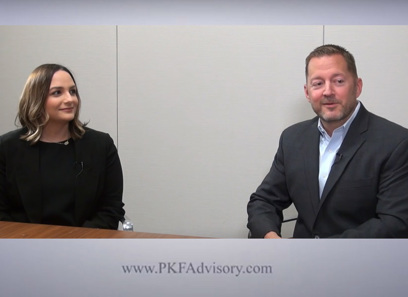The M&A Outlook: Economic Factors That Could Transform Mergers and Acquisitions
The M&A Outlook: Economic Factors That Could Transform Mergers and Acquisitions
Blog Article
Discovering the Monetary and legal Aspects of Mergers and Acquisitions Purchases

Summary of Mergers and Acquisitions
Mergers and purchases (M&A) represent a significant segment of company strategy, with plenty of purchases occurring globally each year. These strategic maneuvers are largely targeted at boosting competitive benefit, expanding market share, and achieving functional harmonies. M&An activities generally fall under two distinctive categories: mergings, where two firms combine to create a new entity, and acquisitions, where one company purchases an additional, hence keeping its identification.
The motivations behind M&A deals are differed. Firms may seek these strategies to diversify their item offerings, get in brand-new markets, or take advantage of technological developments (Economic factors influencing M&A). In addition, M&A can work as a method to eliminate competition or get to beneficial copyright
The procedure of M&An involves several phases, consisting of target recognition, appraisal, arrangement, and integration. Effective purchases require extensive due diligence to analyze monetary health and wellness, operational abilities, and prospective obligations of the target company.
Lawful Framework and Conformity
Comprehending the legal structure and compliance requirements bordering purchases and mergings is crucial for browsing the complexities of these purchases - Economic factors influencing M&A. These processes are governed by a myriad of legislations at both federal and state levels, which aim to make certain reasonable competition, protect stakeholders, and support corporate governance criteria
Key regulative bodies, such as the Federal Trade Payment (FTC) and the Stocks and Exchange Payment (SEC), implement antitrust legislations and safety and securities regulations, specifically. Business must perform detailed due persistance to determine any possible lawful obstacles, including anti-competitive concerns or governing approvals necessary for an effective purchase.
In addition, compliance with disclosure obligations is important, specifically when public business are entailed. This includes filing needed paperwork and giving accurate info to investors and regulative authorities.
Cross-border M&A transactions present extra layers of intricacy, as varying legal criteria and governing structures should be browsed. Involving legal advice with proficiency in acquisitions and mergings is vital to make sure adherence to suitable regulations and to minimize risks. Thus, understanding these lawful structures not only assists in conformity but also boosts the chance of a effective and effective merging or acquisition.
Financial Valuation Methods

Amongst one of the most typical techniques are the Reduced Capital (DCF) analysis, which approximates the here and now value of predicted future money flows, and the Equivalent Firm Analysis (CCA), which assesses a company's value about similar firms within the exact same market (Economic factors influencing M&A). In Addition, Criterion Transactions Evaluation (PTA) checks out historic purchase data to develop standards for evaluation
One more significant method is the Asset-Based Valuation, which concentrates on the company's net property worth, providing a substantial evaluation of worth by considering both present and lasting possessions and obligations. Each technique has its constraints and toughness, frequently varying in applicability depending upon the nature of business and the sector context.
Ultimately, utilizing a mix of these economic assessment techniques can yield a detailed understanding of a firm's value, helping to ensure that both sellers and customers participate in reasonable and fair transactions during the intricate procedure of mergings and purchases.
Due Persistance Refine
Performing thorough due diligence is vital to discovering critical info about a target firm before finalizing a merger or purchase. This process involves a thorough evaluation of the target's economic, functional, lawful, and governing aspects. The key purpose is to recognize prospective dangers and obligations that might affect the deal's value or post-merger performance.

In addition, cultural due persistance examines the compatibility of the combining entities' corporate societies, which is crucial for an effective assimilation. The due persistance process calls for partnership among numerous stakeholders, consisting of legal advise, economic consultants, and market experts, to guarantee an all natural understanding of the target firm.
Ultimately, the searchings for from due persistance inform arrangement techniques and may lead to adjustments in the purchase cost or terms, therefore protecting the interests of the acquiring party and laying the foundation for a successful merger or acquisition.
Post-Merger Integration Obstacles
While effective mergings and acquisitions frequently produce significant harmonies and growth possibilities, the post-merger assimilation stage provides a myriad of difficulties that can threaten these advantages. One of the primary problems is the social combination of the combining entities. Differing corporate Read More Here societies can cause worker resistance, decreased spirits, and eventually, skill attrition. Establishing a unified company identity is crucial to minimize these risks.
An additional substantial difficulty depends on lining up systems and procedures. The combination of disparate IT systems, functional techniques, and monetary reporting can be intricate and time-consuming, typically causing operational disruptions. Furthermore, the failure go now to communicate effectively during this stage can result in confusion and misinformation among employees, customers, and stakeholders.
Financial integration likewise positions obstacles, specifically in fixing up financial policies and bookkeeping methods. This imbalance can result in inconsistencies in monetary reporting, affecting stakeholder confidence and market understanding.
Last but not least, governing compliance issues might emerge, requiring thorough focus to lawful demands. Addressing these challenges without delay and tactically is essential for realizing the awaited benefits of a merging or procurement, ensuring long-lasting success and security.
Conclusion
In conclusion, the intricate landscape of purchases and mergers requires an extensive understanding of both legal and economic elements. Adherence to regulatory structures ensures conformity and minimizes anti-competitive dangers, while robust financial assessment strategies supply vital insights right into company well worth.
The intricate landscape of Check This Out purchases and mergers purchases necessitates an extensive understanding of both legal frameworks and financial valuation techniques. Regulatory bodies, such as the FTC and SEC, impose rigorous conformity demands to protect versus anti-competitive actions, while robust financial analysis methods are important for accurately examining a business's value. Successful deals call for comprehensive due persistance to assess financial health, functional capabilities, and prospective responsibilities of the target company.Financial due diligence analyzes historical and predicted monetary statements, money circulation evaluation, and tax obligation compliance. Adherence to regulatory frameworks guarantees compliance and reduces anti-competitive threats, while robust economic evaluation strategies supply crucial insights right into business well worth.
Report this page